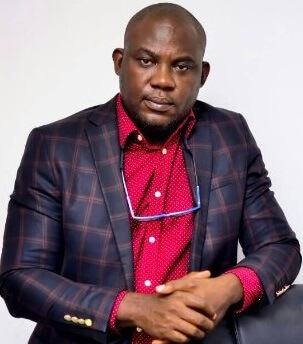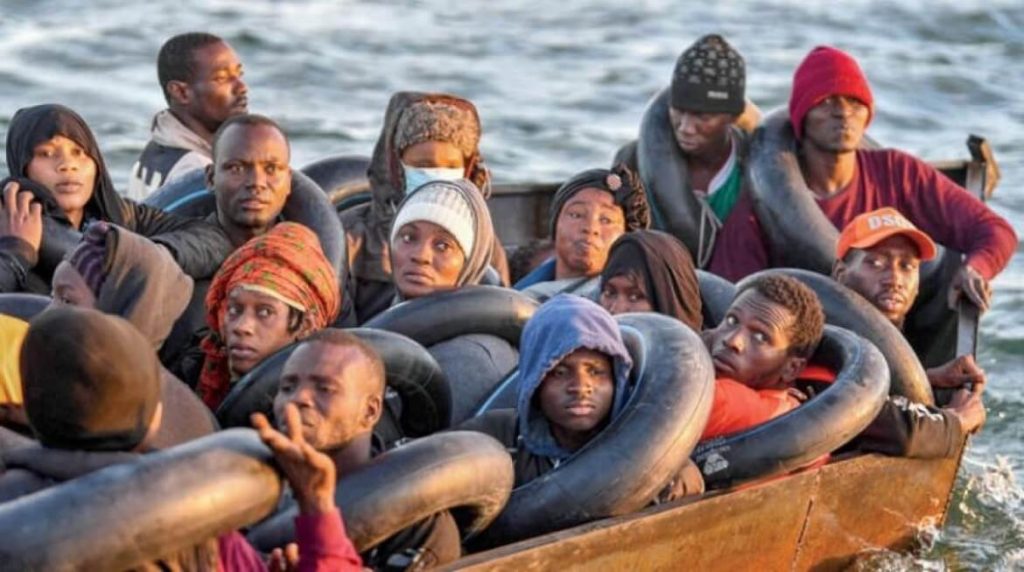World Geostrategic Interview with Osita Osemene on the causes of human trafficking from Nigeria and on how to counter it and facilitate the return of illegal migrants to Nigeria.

Osita (Samuel) Osemene is an experienced Human Rights and Advocacy Activist and an ILO Certified Master Trainer in Entrepreneurship Development, with over 14 years experience in active advocacy and campaigning against human trafficking and migrant smuggling in and across the West Africa region. He is an active member of NACTAL/CSOnetMADE and other coalitions of NGOs involved in the crusade against the threat of human trafficking, and other crimes against the vulnerable and less privileged members of society. Osita Osemene is the founder and the Director of Patriotic Citizen Initiatives, Lagos, Nigeria.
Q1 – Human trafficking, the illegal trade of people for exploitation or commercial gain, according to the U.S. DHS Center for Countering Human Trafficking represents an estimated $150 billion global industry. Two-thirds of this figure ($99 billion) is generated by commercial sexual exploitation, while another $51 billion comes from forced economic exploitation, which includes domestic labor, agriculture and other economic activities. So human trafficking is a very lucrative crime that brings huge profits to criminals, while at the same time generating a huge cost to the community in terms of law enforcement, health and social safeguards, loss of economic output, decrease in quality of life, and organization of various anti-trafficking activities. Nigeria remains a main source, transit and destination country when it comes to human trafficking, the majority of victims of sex trafficking worldwide are Nigerian nationals. Nigerian mafias have a significant role by regularly cooperating inside European countries with local gangs and organizations in the various human exploitation activities. Various ploys are used including seeking asylum to legalize their status and that of their victims. Many alleged perpetrators of human trafficking have legal residence permits, are asylum seekers or enjoy refugee status in some cases. Which are in your opinion the current causes, characteristics and dynamics of Nigerian trafficking?
A1 – Yes, human trafficking is a very lucrative business especially now considering the present global economy. The case of Nigeria is not exceptional, however Nigeria remains a source, transit and destination country due to increased tactics of the Nigeria traffickers through exploring different means to lure their victims especially women and girls for sex exploitation.
The current causes can not be overemphasized. The decay in the society as a result of continuous lack of enabling environment, high level of poverty, loss of societal values, government neglect of social security, high level of unemployment. Therefore trafficking in Nigeria may take a new dimension because a lot of girls and women even give themselves up for trafficking because of the situation they are in Nigeria. Traffickers have also made them believe they are rendering help to them and usually provide sophisticated and very attractive information. It will surprise you to know that family members are engaged by traffickers during the recruitment of their relatives or children.
Q2 – Historically, the overwhelming majority of Nigeria’s trafficking victims and migrants made the perilous journey from Edo State (particularly Benin) and the Delta States to Kano, from where they were smuggled to Niger or Algeria before crossing the 500-mile Sahara Desert to Libya. Nigeria holds the grim record for the number of African migrants arriving by sea on Italian shores, most of them young women destined for sexual exploitation. Poverty, crime, corruption and violence are fundamental factors in driving people to emigrate from Nigeria with young women particularly vulnerable to trafficking for sexual exploitation due to limited work opportunities at home, according to a report in IOM’s Migration Research Series. What approach do you think should be taken to really counter this phenomenon? Does it have its responsibility also the European “market” that demands cheaper and younger prostitutes?
A2 – You will agree with me that the traffickers have made Europe very attractive by sharing and showcasing fake lives in Europe which attracts young women and men. This is due to the fact that a lot of them are in a desperate situation to make a better life. You can not also rule out the fact that Europe also demands for young girls as in the case of Spain and Italy where prostitution thrives and traffickers enjoy their moment. You will agree with me that without demand there can be no supply.
Q3 – Nigeria, with the help of the IMO (International Organization for Migration) and other international organizations, offers facilities for the return of Nigerians who have emigrated and are in distress. However, once back in their communities, these people, especially women, are rejected by their families, friends and society. They are stigmatized, unemployed and some end up being trafficked for a second or even third time. In your opinion, what social approach should communities take to increase resilience against exploitation and counter the underlying socio-economic and cultural issues that foster trafficking?
A3 – Several strategies have been adopted by local and international partners to ensure community involvement and acceptance of returning migrants. This is to ensure that returnees are not ashamed, feel rejected or stigmatized. There is this introduction of community based Reintegration where family and community members are also beneficiaries in the reintegration activities. We also have migrants as messengers, where returnees are using their stories to change the mindset of potential migrants. This helps them to overcome stigmatization. Involving the community approach has helped to discourage being re-trafficked.
Q4 – What are the main projects your organization (Patriotic Citizen Initiatives) is currently executing to combat illegal immigration and facilitate the return and integration of immigrants?
A4 – We are providing technical support to FIIAPP in Nigeria to train CSO’S on the legal pathway to migration under the European Union funded project. PCI also provides different types of supports to both potential migrants and return migrants such as: Entrepreneurship development business training, Mentoring programs for returnees, Courage and Confidence Building.
At present we are partnering with the Dutch Council for Refugees to provide return, readmission and reintegration activities for Nederland returnees. We also collaborate with the Danish Refugee Council to provide seamless return, readmission and reintegration activities for Denmark returnees to Nigeria. The PCI has been a long time partner of the International Organization For Migration for the protection of returning migrants in Nigeria.
In 2021, PCI launched the only male shelter for vulnerable returning migrants, having seen a gap in providing adequate reintegration support for male returnees.
Among the support provided by Patriotic Citizen Initiatives through our partners there are the economic support, psychosocial counseling, and vocational training. We also monitor the beneficiaries for a period of one year.
Osita Osemene – Founder and Director of Patriotic Citizen Initiatives, Lagos, Nigeria
Image Credit: AFP







